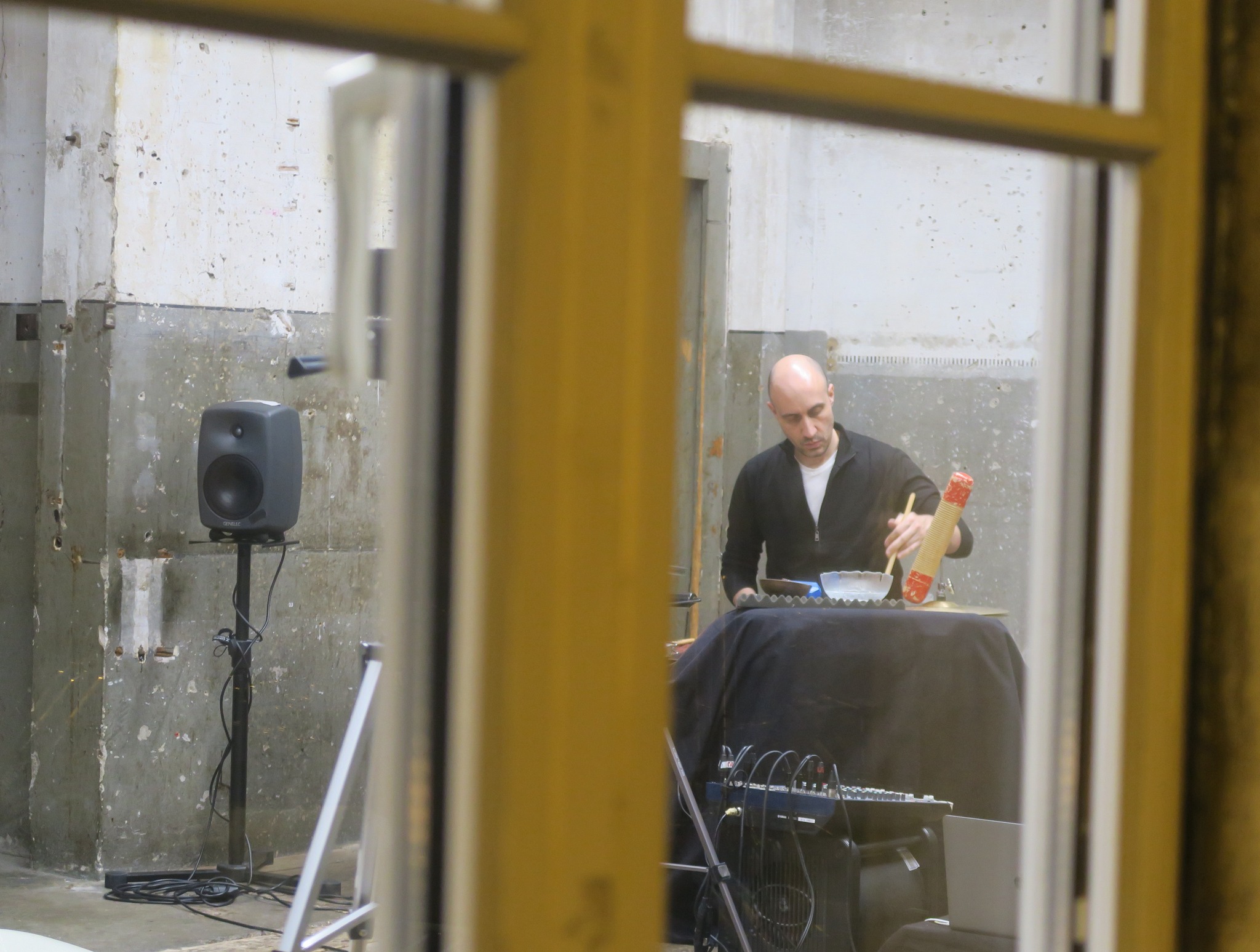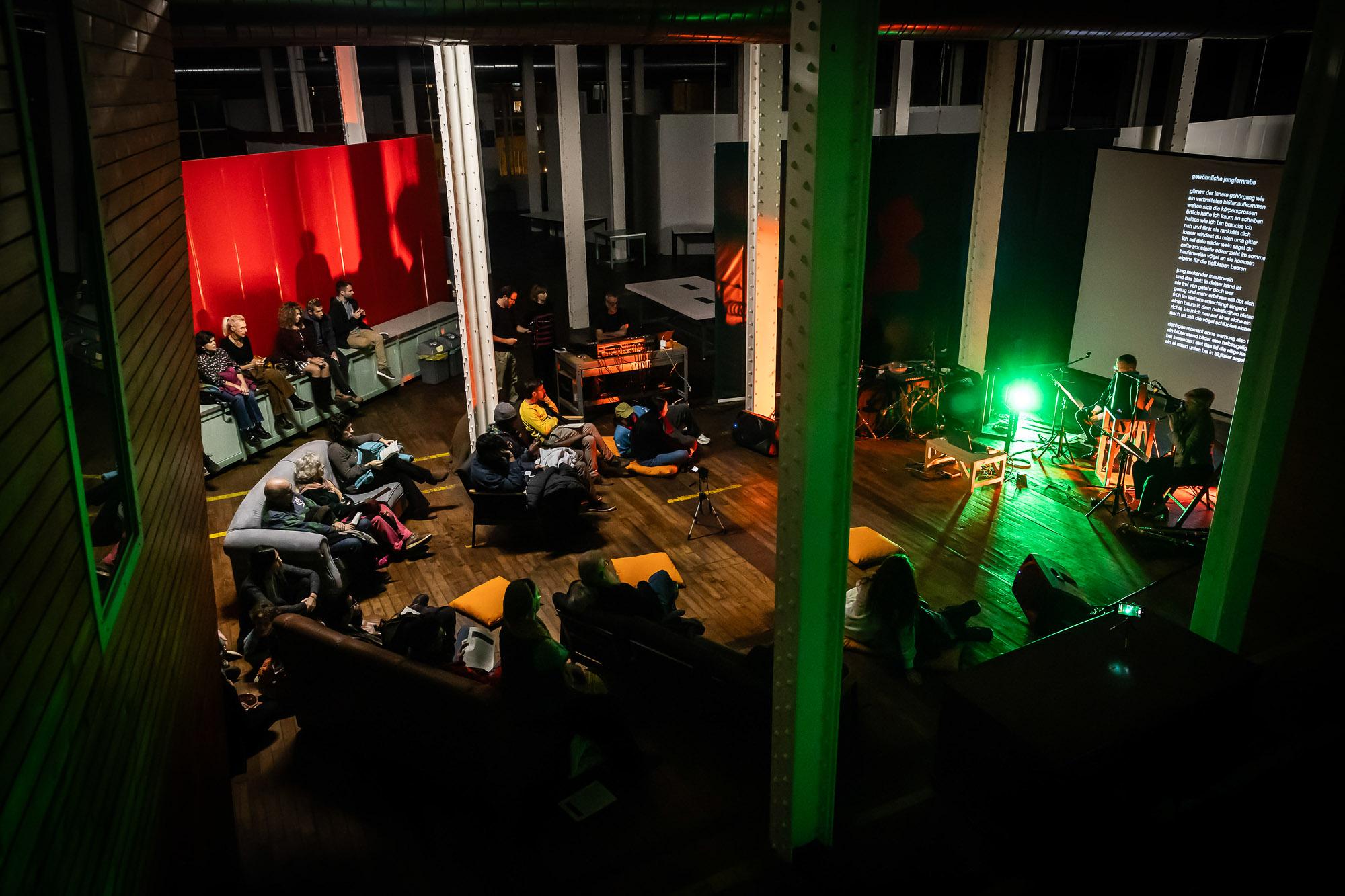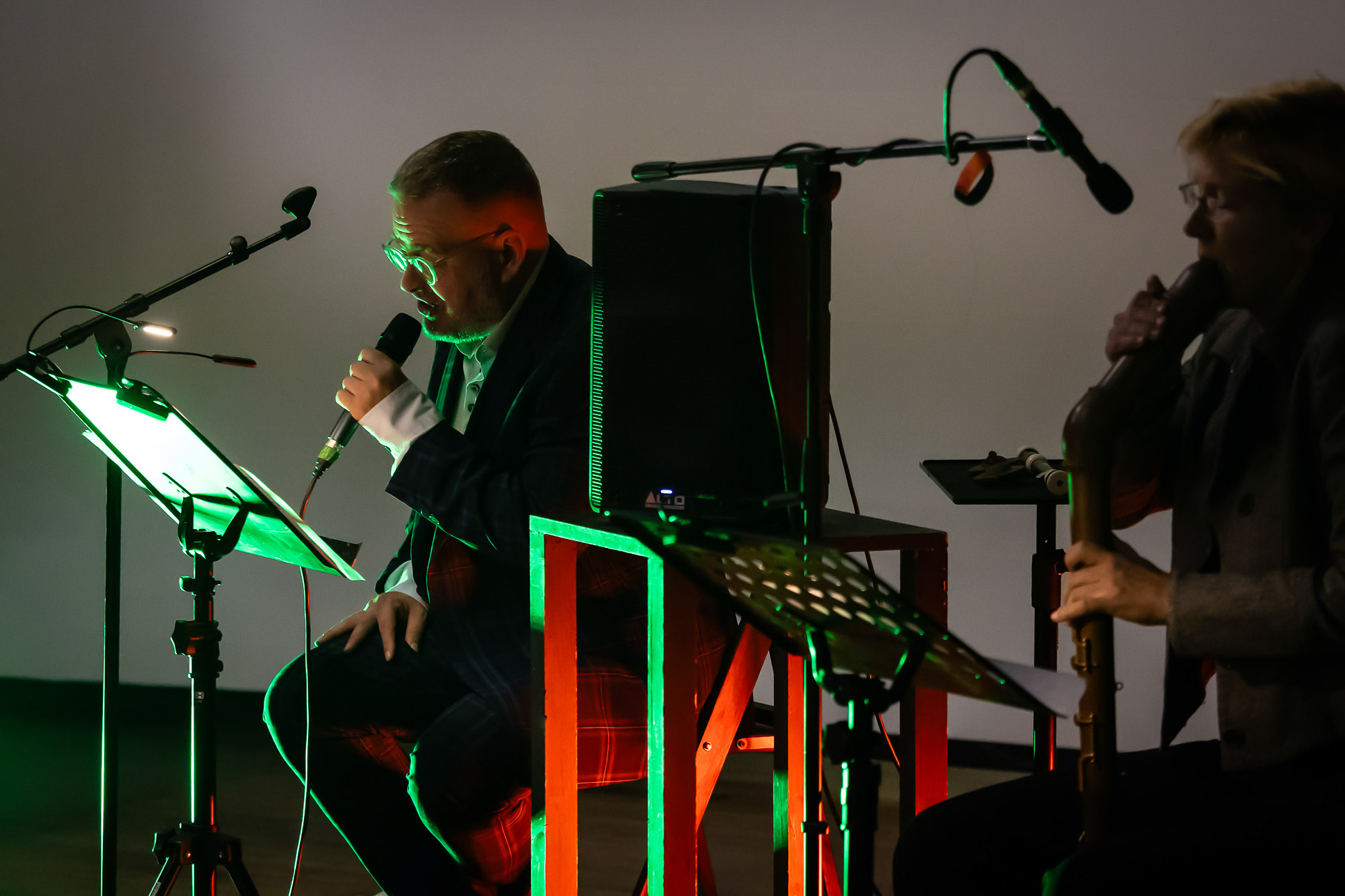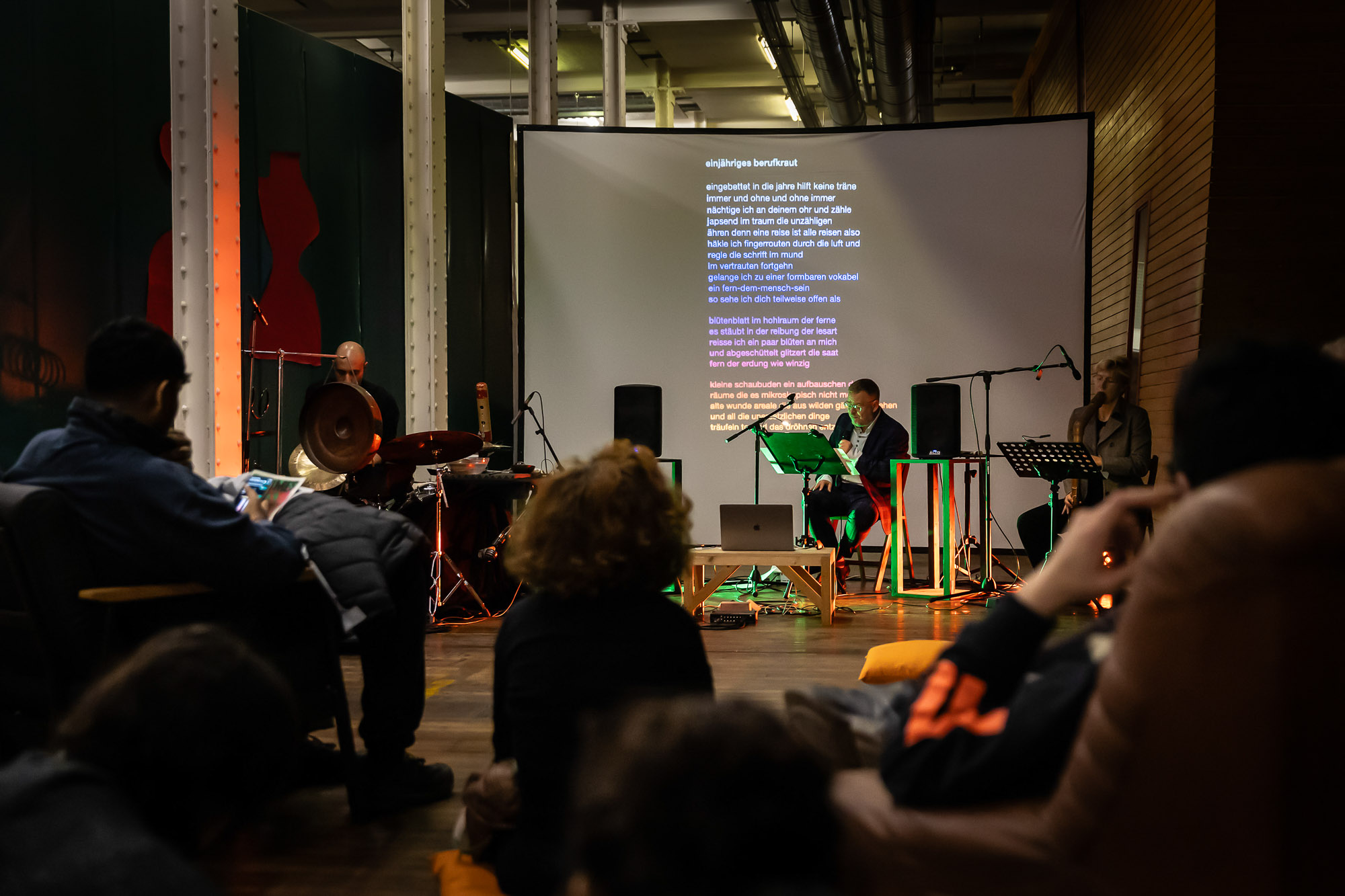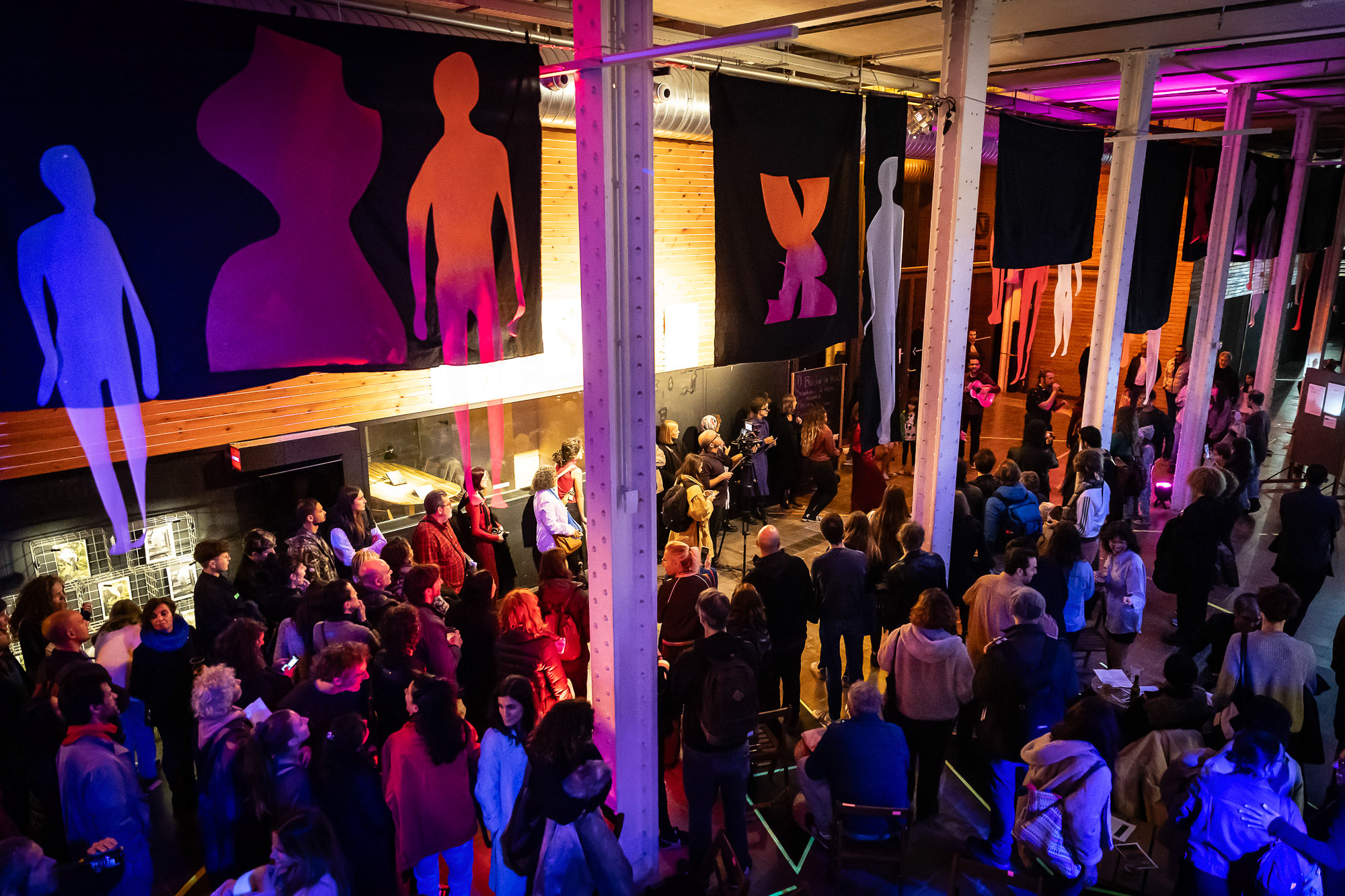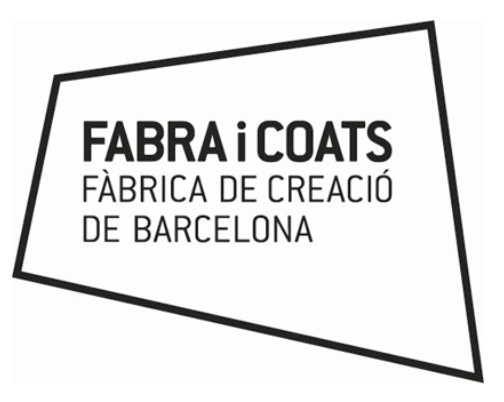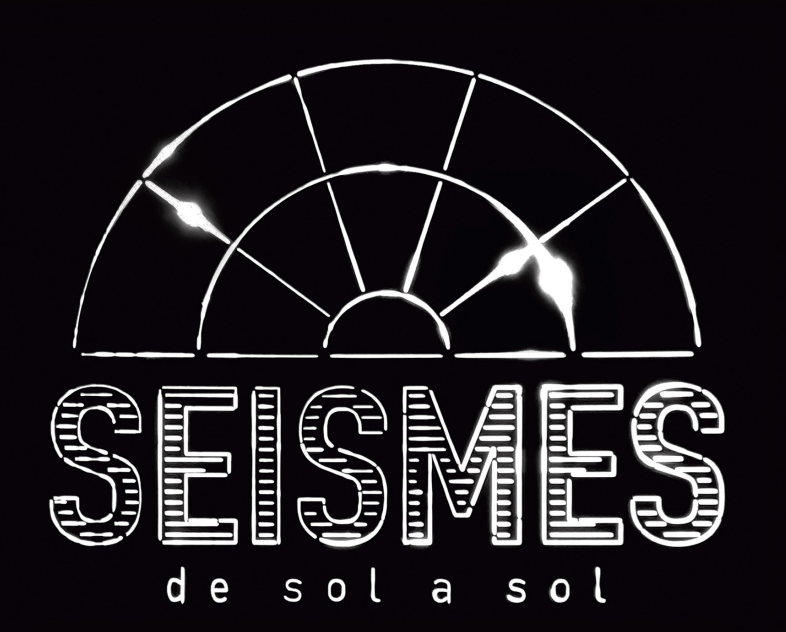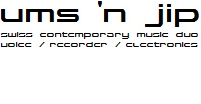__ neophyten
![]()
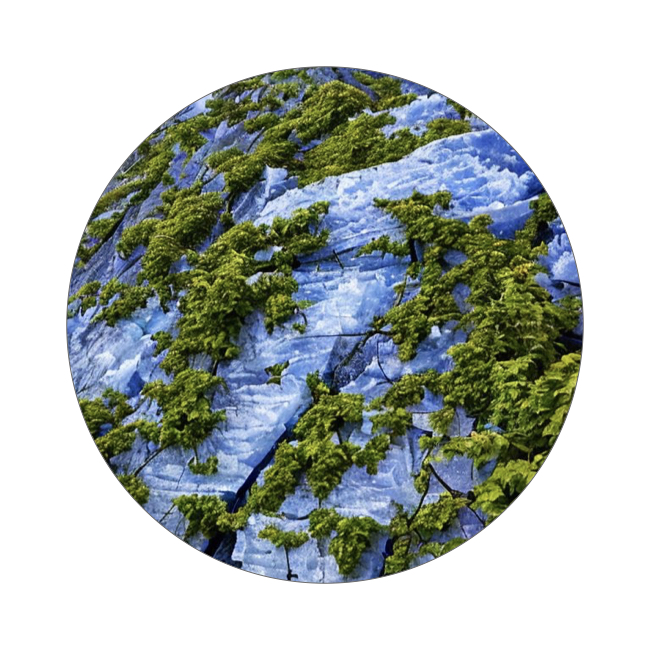
![]()
PROGRAMM
neophyten
Liederzyklus
für Stimme, Blockflöten, Perkussion
und Live-Elektronik (Audio & Video), 2023
Text nach dem gleichnamigen Gedichtzyklus von Rolf Hermann
aus dem Gedichtband „In der Nahaufnahme verwildern wir“
Dauer: ca. 80m
![]()
IDEE
Am Ende bleibt die Natur
und das, was wir vielleicht als die Ekstase der Wörter
bezeichnen können – die Dichtung.
Rolf Hermann
Rolf Hermanns
neophyten ist ein 24teiliger Gedichtzyklus aus dem Gedichtband
„In
der Nahaufnahme verwildern wir“ (2021). Dieser lehnt
sich strukturell an Rainer
Maria Rilkes Gedichtzyklus "Les
Roses" an. Neophyten sind Pflanzen, die sich in Gebieten
ansiedeln, in denen sie zuvor nicht heimisch waren. Für Rolf
Hermann sind sie eine Erscheinung der globalisierten Welt
und der Klimaveränderung in einem. Pflanzen werden –
absichtlich oder versehentlich – auf Tankern oder Lastwagen
von einem Kontinent zum anderen, von einem Land zum anderen
transportiert. Und weil sich das Klima erwärmt, wandern sie
oft weiter, von Süden in Richtung Norden, und verändern so
die jeweilige Vegetation. In gewisser Weise sind die
Neophyten für mich also Chiffren für das Anthropozän, für
ein vom Menschen verursachtes biologisches Phänomen, das
sich weitgehend verselbstständigt hat.
Wie bei einer Versuchsanordnung wird das (französische)
Textmaterial zunächst einmal gesichtet und vorgängig
ins Deutsche «übersetzt». Die Überführung
geschieht maschinell, mittels eines internetbasierten
Translators, und zwar über verschiedene
Stationen: Durchlaufen werden dabei jene Sprachen,
mit denen Rilke auf seinen Reisen in Berührung
gekommen ist, also, neben dem Französischen und in
alphabetischer Reihenfolge, das Arabische,
Dänische, Italienische, Polnische, Russische,
Schwedische, Spanische und Tschechische. Diese
Reise durch die Idiome endet im Deutschen und folgt den
engen Vorgaben der datenbankgestützten
Übersetzungsmaschine, die sich bei der Auswahl zwar
auf statistische Wahrscheinlichkeiten abstützt,
aber dadurch den lyrischen Kontext so gut wie
ausschliesst. Am Zielpunkt wartet ein Text als Resultat
eines Spiels der Zufälle. Die Verfremdung schafft Distanz
wie auch die Freiheit, sich dieser Lieferung der
Stillen Post mit sprachspielerischen Methoden anzunehmen
oder, der Intuition folgend, bestimmte Zeilen
oder Wortgruppen auszuwählen, assoziative Bezüge
herzustellen und der Eigendynamik der lyrischen
Reflexion und Textarbeit ihren Lauf zu lassen. Die
Würfel sind geworfen. (...) Mit der aleatorischen formalen
und sprachlichen Öffnung dehnt sich auch das Spielfeld
aus. (...) Steht im Zyklus Les Roses die Rose «als
glückliches Ergebnis unserer bewussten Züchtung
(...) für eine durch Kunst geadelte Natur
und damit für die Kultur schaffende Leistung des
Menschen überhaupt», geht Rolf Hermann in den als
Akrosticha gesetzten neophyten der Frage
nach, inwiefern und wie sich die unbändige und
invasive Kraft von Natur und auch Poesie in Welt und
Mensch festzusetzen vermag. In armenische
brombeere heisst es: «ein wort ist ein weiter
sprung/ beinah bodenlos aus mir heraus (...)/ein
andermal gar da bin ich/ eine schwarzpulverseele
die eine/reihe von effekten zu/einer zündschnur eint».
(...) Das Spiel mit Verfremdung, Recherche und Intuition
erweist sich als eines des Pendelns zwischen Nähe und
Distanz. Dabei zeigt sich, dass wie
bei bildgebenden Verfahren im Generellen auch bei der
Textarbeit ein besonders starkes Zoomen auf
den Gegenstand nicht zwingend zu mehr Nähe
führt, sondern geradezu eine grösstmögliche Distanz
generiert. Aber genau die durch mikroskopische
Verpixelung entstandene Distanz ist der Katalysator
für Kreativität und Kreation. «in der
nahaufnahme verwildern wir» – dass diese Nähe auch
wilde Kräfte freisetzt, die sich über ein Geflecht
von Rhizomen rasend schnell verbreiten, beschreibt
nicht nur das
Gedicht asiatischer staudenknöterich aus dem
Zyklus neophyten, nein, jene Freisetzung, wie
sie wohl nur von Lyrik «eingefangen» werden kann, ist
ein Grundmuster, das im vorliegenden Band als Ganzem
eingeschrieben ist. Gedichte als Wagnis – diesem
hat sich Rolf Hermann erneut gestellt.
Alejandro Hagen, aus: Nahaufnahmen, in: Rolf
Hermann, "In der Nahaufnahme verwildern wir", p. 166-170
Eine musikalische Interpretation einer literarischen
Anverwandlung Rilke ́scher Gedichte
UMS'nJIP
UMS'nJIP's neophyten ist ein Liederzyklus für Stimme,
Blockflöten, Perkussion und Elektronik (Audio & Video),
der zusammen mit dem spanischen Perkussionisten und
Komponisten Luis Tabuenca (Barcelona) auf Anregung von Rolf Hermann, einem
langjährigen künstlerischen Weggefährten von UMS'nJIP,
entstanden ist. Das Werk ist abendfüllend und sowohl als
Ganzes wie auch in Teilen aufführbar: konzertant,
performativ und/oder als Teil einer Lesung.
Die Komposition
Wild wuchernd, geradezu vegetativ berauschend springt uns Rolf Hermanns Zyklus neophyten an, mit dem er auf Rilkes "Les Roses" antwortet - urtümlich, kraftvoll, zäh und rätselhaft. Oder um Beat Mazenauer zu zitieren: Die Sprache (...) beginnt zu verwildern, sie samt Silben ab und formt sie zu neuen Worten, findet sich zu Bildern, die neophyt und ungewohnt, vital und frisch sind. Die Nahaufnahme, der konzentrierte Blick stellt auf die glatte Oberfläche scharf und nimmt so erst deren raue Struktur wahr.
Wovor stehen wir? Einerseits ist das Textmaterial durch
verstörend unlyrische Verfahren eingedampft und durch strenge
formale Spielregeln gebunden, gleichzeitig rankt sich die
Sprache der Gedichte ungestört um diese Gitter, wuchert diese
zu und breitet sich schier ungebremst in unbekannte und
merkwürdige metaphorische Gefilde aus.
Darauf antworten wir einerseits mit drei archaischen
Instrumenten: Stimme, Flöte und Perkussion, ferner - als
bewusstem Gegenpol - mit Elektronik - und zu guter Letzt mit
einem zwischen Komposition und Improvisation angesiedelten
Verfahren: Die Gedichte werden analysiert - auf ihren Klang
und Rhythmus, auf intertextuelle Bezüge, auf ihre Hybris
zwischen biologischem Beschrieb und dichterischer
Anverwandlung.
Heraus kommt eine zeitlich und in klaren Abschnitten
strukturierte knapp 90minütige dramaturgische Grossform, in
welcher sich die gesprochene Sprache sinnlich, situativ und
ausgesprochen sensibel/fragil aus instrumentalen Klangfeldern
heraus, aus einer Ursuppe sozusagen, Schicht um Schicht
schält, um sich in einen virtuellen - klanglich gesprochen: in
einen voraufgenommenen Raum - einem bedruckten Blatt gleich,
zu begeben.
So wie Rolf Hermanns Wunsch: „die Sinnlichkeit und die
Verletzlichkeit der Welt in Worten erfahrbar zu machen“
gesellt sich zu ihm der unsrige, dieselbe Sinnlichkeit und
Verletzlichkeit nun auch in Klängen erfahrbar zu
machen.
neophyten
armenische brombeere - rubus armeniacus
asiatischer staudenknöterich - reynoutria japonica
blauglockenbaum - paulownia tomentosa
brasilianisches tausendblatt - myriophyllum aquaticum
drüsiges springkraut - impatiens glandulifera
einjähriges berufkraut - erigeron annuus
essigbaum - rhus typhina
falsche akazie - robinia pseudoacacia
gewöhnliche jungfernrebe - parthenocissus inserta
götterbaum - ailanthus altissima
grossblütiges heusenkraut - ludwigia grandiflora
henrys geissblatt - lonicera henryi
herbst-traubenkirsche - prunus serotina
himalaja-knöterich - polygonum polystachyum
jakobs-kreuzkraut - senecio jacobaea
kanadische wasserpest - elodea canadensis
kirschlorbeer - prunus laurocerasus
riesen-bärenklau - heracleum mantegazzianum
schmalblättriges kreuzkraut - senecio inaequidens
schmetterlingsstrauch - buddleja davidii
spätblühende goldrute - solidago gigantea
syrische seidenpflanze - asclepias syriaca
traubenkraut - ambrosia artemisiifolia
verlotschter beifuss - artemisia verlotiorum
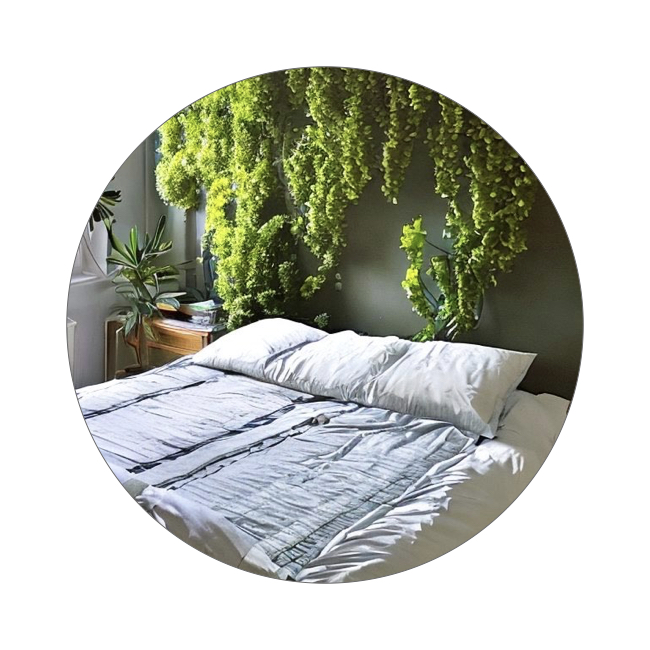

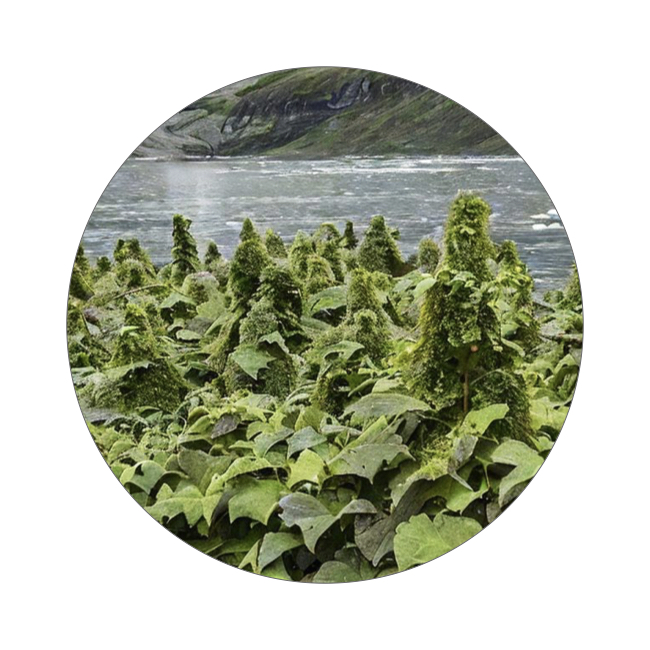
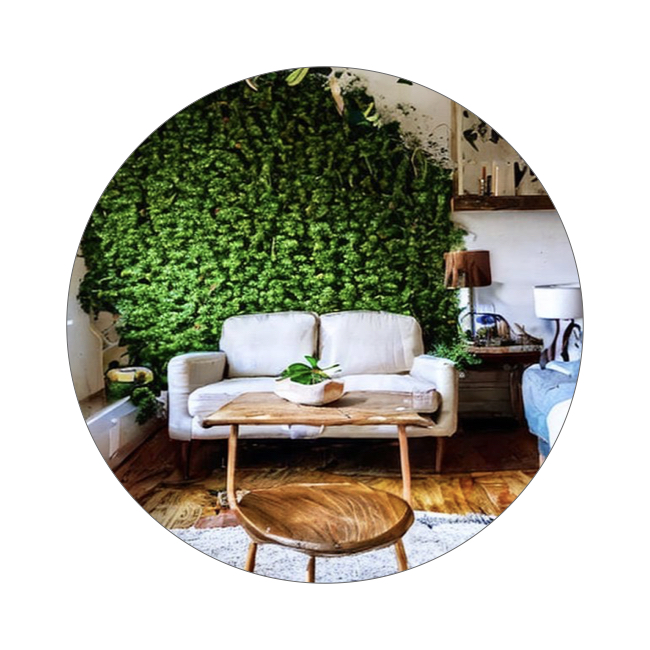
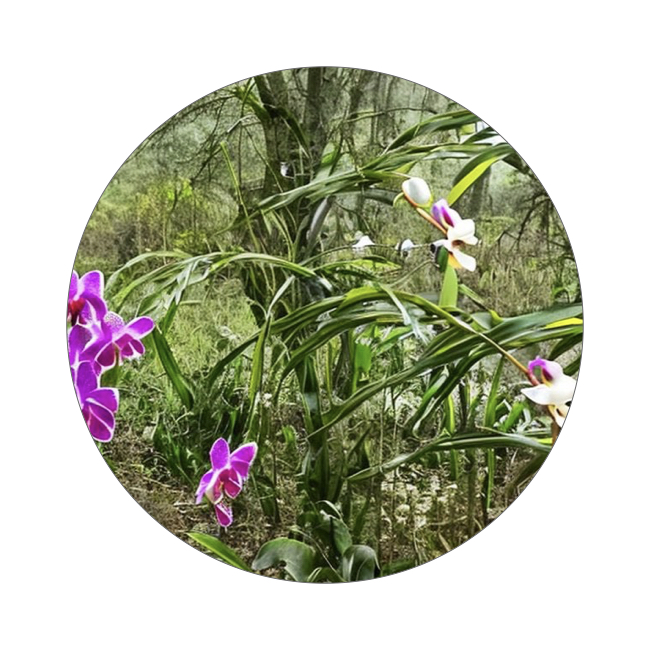
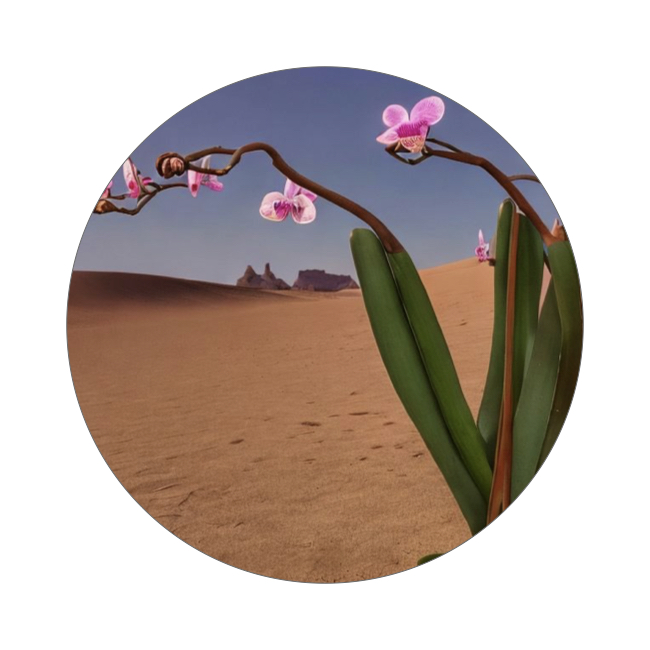
At the end, nature remains and what we might
refer to as the ecstasy of words – poetry.
Rolf Hermann
"Neophytes" is a 24-part cycle of poems from the poetry
collection "In der Nahaufnahme verwildern wir" (2021) by Rolf
Hermann, which is structurally based on Rainer Maria Rilke's
cycle of poems "Les Roses." Neophytes are plants that settle
in areas where they were not native before. For Rolf Hermann,
they represent a manifestation of the globalized world and
climate change combined. Plants are intentionally or
accidentally transported on tankers or trucks from one
continent to another, from one country to another. And as
the climate warms, they often migrate further, from south to
north, thereby altering the respective vegetation. In a way,
Neophytes are thus symbols of the Anthropocene, a
biologically induced phenomenon by humans that has largely
become self-sustaining.
Similar to an experimental setup, the textual material is
first examined and "translated" into German. The translation
is done mechanically, using an internet-based translator,
through various stages: the languages that Rilke came into
contact with during his travels are included, which, in
alphabetical order, besides French, are Arabic, Danish,
Italian, Polish, Russian, Swedish, Spanish, and Czech. This
journey through idioms ends in German and follows the strict
guidelines of the database-supported translation machine,
which relies on statistical probabilities for selection but
largely excludes the lyrical context. At the endpoint, a
text awaits as the result of a game of chance. The
alienation creates distance as well as the freedom to
approach this delivery of "Chinese whispers" using playful
linguistic methods, or, following intuition, to select
certain lines or word groups, establish associative
references, and let the autonomous dynamics of lyrical
reflection and text work take their course. The dice are
cast. [...] With the aleatory formal and linguistic opening,
the playing field also expands. [...] While in the cycle
"Les Roses," the rose "as the happy result of our conscious
cultivation [...] represents a nature ennobled by art and
thus the culture-creating achievement of humanity as a
whole," Rolf Hermann, in the neophytes set as acrostics,
explores the extent to which the uncontrollable and invasive
power of nature and poetry can establish itself in the world
and in humans. In "Armenian Blackberry," it says: "a word is
a wide leap / almost bottomless from me (...)/ at other
times even there I am / a black powder soul that a / row of
effects into / a fuse brings together." [...] The play with
alienation, research, and intuition reveals itself as one of
oscillating between proximity and distance. It becomes clear
that, as with imaging techniques in general, zooming in on
the object does not necessarily lead to more proximity, but
rather generates the maximum distance. However, the distance
created by microscopic pixelation is the catalyst for
creativity and creation. "In der Nahaufnahme verwildern wir"
(In close-up, we become wild) – that this proximity also
unleashes wild forces that spread rapidly through a network
of rhizomes, as captured only by poetry, describes not only
the poem "Asian Knotweed" from the neophytes cycle but also
a fundamental pattern inscribed in this volume as a whole.
Poems as an endeavor – this is a challenge that Rolf Hermann
has once again faced. Alejandro Hagen, excerpt from
"Nahaufnahmen" (Close-ups), in: Rolf Hermann, "In der
Nahaufnahme verwildern wir," p. 166-170
A musical interpretation of a literary adaptation of
Rilke's poems. "Neophytes" is a song cycle for voice,
recorders, percussion, and electronics (audio & video) by
UMS n JIP and Luis Tabuenca, created in collaboration
with the author Rolf Hermann. Hermann has been a long-time
artistic companion of UMS n JIP and inspired the
composition. The work is full-length and can be performed as a
whole or in parts: in concert, performance, and/or as part of
a reading.
The composition. Wildly overgrowing, almost
vegetatively intoxicating, the cycle "neophytes" confronts us,
with Rolf Hermann responding to Rilke's "Roses" - vital,
tough, powerful, enigmatic, and primordial. Or to quote Beat
Mazenauer: The language (...) begins to grow wild, shedding
syllables and forming them into new words, finding itself in
images that are neophyte and unfamiliar, vital and fresh. The
close-up, the concentrated gaze, sharpens the smooth surface
and only then perceives its rough structure. What do we stand
before? On the one hand, the textual material is condensed
through disturbingly unlyrical processes and bound by strict
formal rules, while on the other hand, the language of the
poems coils undisturbed around the grid, growing around it and
spreading almost unbridled into unknown and strange
metaphorical fields. In response (UMS'nJIP & Luis
Tabuenca), we use three archaic instruments: voice, flute, and
percussion, but also - as a deliberate counterpoint -
electronics - and a method situated between composition and
improvisation. The poems are analyzed for their sound and
rhythm, intertextual references, and their hubris between
biological description and poetic adaptation. The result is an
80-minute structured dramaturgical opus, in which the
language, sensual, situational, and exceedingly sensitive and
fragile, emerges like a golem layer by layer from instrumental
sound fields, like a primordial soup, to enter a virtual, that
is, anticipated space - much like a printed page. Just as Rolf
Hermann's desire to "make the sensuality and vulnerability of
the world perceptible in words" accompanies him, we join him
in making the same sensuality and vulnerability perceptible in
sounds.
![]()
BIOGRAPHIEN

Rolf Hermann by Dirk Skiba
Rolf Hermann. Geboren 1973 in Leuk,
Kanton Wallis, lebt als freier Schriftsteller in
Biel/Bienne. Er schreibt Prosa, Lyrik,
Hörspiele, Spoken-Word- und Theatertexte. Das Studium
der Anglistik und Germanistik in Fribourg und Iowa,
USA, verdiente er sich als Schafhirt im Simplongebiet.
Neben Einzellesungen aus seinen Büchern tritt Hermann
mit zwei weiteren Projekten auf:
der Mundart-Combo Die Gebirgspoeten und der
Spoken-Rock-Formation Trio Chäslädeli. Sein Schaffen
wurde verschiedentlich ausgezeichnet, zuletzt mit dem
Kulturpreis der Stadt Biel (2017) und dem
Literaturpreis des Kantons Bern für den
Erzählband Flüchtiges Zuhause (2019). Zahlreiche
Auftritte in der Schweiz und darüber hinaus: Buchmesse
Leipzig, Book Fair Vilnius (Lettland), Poetry Days der
University of Southern Indiana in Evansville
(USA), European Poetry Festival London, Meridian
Czernowitz (Ukraine), Hausacher Leselenz (D),
Literaturfestival „Erzählzeit ohne Grenzen“ in Singen
(D), Literaturhaus Stuttgart, w.orte Lyrikfestival
Innsbruck (Ö), Innsbrucker Prosafestival
(Ö), Literaturhaus
Niederösterreich, Literaturgesellschaft
Wien, Internationales Literaturfestival Leukerbad,
Solothurner Literaturtage, Literarischer Herbst Gstaad,
lauschig Winterthur, Salon du Livre Genf, Aprillen
Bern, Literaturfest Bern, Internationales Lyrikfestival
Basel, Literaturhaus Zürich, Literaturhaus Gottlieben,
Literaturhaus Liechtenstein, Literaturhaus
Zentralschweiz, Tojo Theater Bern, Le Singe Biel,
Kreuzkultur Nidau, Literaare Thun, Die Literarischer
Biel, Kaufleuten Zürich, Zürich liest, Buchbasel,
wortlaut St. Gallen, Zentralschweizer Literaturtage auf
der Rigi, Philosophicum Basel, Kleintheater Luzern,
Kleine Bieler Büchermesse, Loge Luzern, Café Kairo,
Mundartfestival Arosa, Kulturgarage
Interlaken, Chäslager Stans, Stiftung Rilke Sierre,
Zeughauskultur Brig, Matterhorn-Museum Zermatt, Schloss
Leuk, Roggenzentrum Erschmatt, Burgerstube Albinen. https://rolfhermann.ch,
https://de.wikipedia.org/wiki/Rolf_Hermann
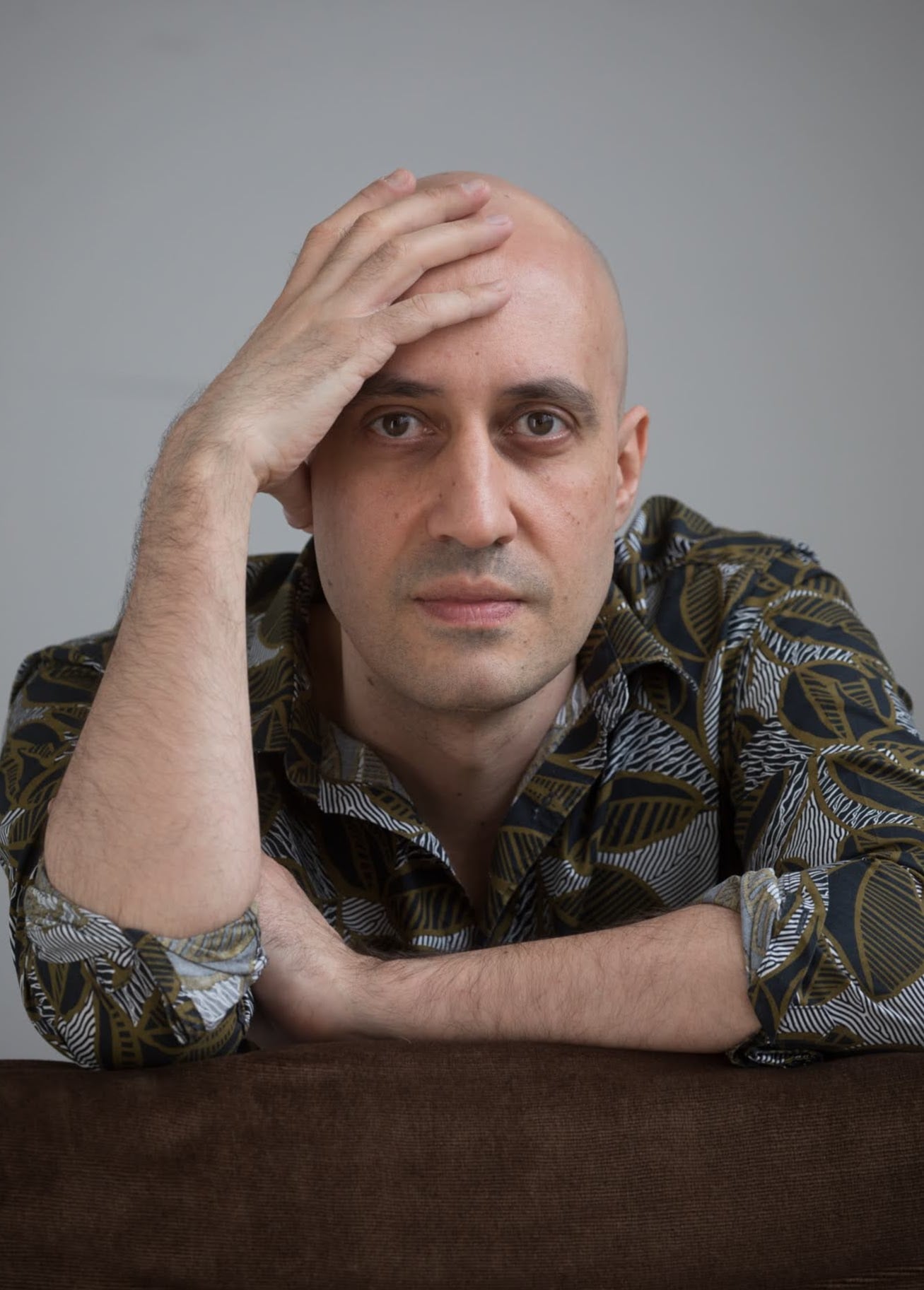
Luis Tabuenca by Luis Tabuenca
Luis Tabuenca. Composer and percussionist
Luis Tabuenca was born in Zaragoza, Spain. His
music integrates elements from other disciplines, with
compositions ranging from opera, installations,
sound sculptures, films, ballet, chamber music and solo
works. He studied at the Conservatories of
Zaragoza, Barcelona, Amsterdam and the University of
California at San Diego with Steven Schick,
Philippe Manoury and Mark Dresser, also attending
workshops with Tristan Murail, Carola Bauckholt,
Rebecca Saunders and Alexander Schubert,
among others. He is celebrated for his
incomparable virtuosity, mastery and an
extraordinary ability to blend composition and
improvisation in his work. He has performed nationally
and internationally with his own ensembles, as
well with artists such as Peter Veale, Séverine Ballon,
Naomi Sato, John Edwards, Hans Tammen, Dafna Naphtali,
and Imre Thormann, among many others. The Wire magazine
has praised Tabuenca for his
instrumental creativity, “Tabuenca’s colourful
percussion is involving, beautiful and immaculately
sequenced.” The All about Jazz magazine noted
that Tabuenca’s music is “full of nuanced drama,
arresting tension and vibrant colors”. As
a leader, he has released seven critically acclaimed
recordings that feature his work as a composer and
percussionist. He has recorded for Mode Records, Aural
Terrains, Diatribe, Verso, Sinkro, Naucleshg
and Acheulian Handaxe Records. He is co-founder and
Artistic Director of the International
Experimental Music Festival (FAT) and he has
been Artist in Residence at the New York University,
Electroacustic Music Days (Portugal), Canterbury
University, and the Phonos Foundation,
among others. Tabuenca has received awards
and support for his creative projects from
the Fulbright Commission, the Ministry of Culture of
Spain, Government of Aragon, Institut Ramon Llull
and the ICUB from Barcelona. Tabuenca has given
lectures and workshops on composition, percussion
and improvisation in numerous universities and cultural
institutions, such as Goldsmith University, National
University of Colombia, American University in
Cairo, Bulgaria National Conservatory and New
York University. https://luistabuenca.com/

UMS ´n JIP by Alejandro Held
UMS'nJIP are a Swiss contemporary music duo,
consisting of Ulrike Mayer-Spohn (UMS) on recorders
& electronics and Javier Hagen (JIP), voice &
electronics. One of the most experienced and
distinguished contemporary music laboratories of our
times, they work as performers, composers and organizers
within a global network
of composers, visual artists, stage directors,
researchers, universities and festivals. Their special
interest in long term collaboration, with its exchange
of knowledge and awareness, brings context to new
creations and results in an outstanding increase of
artistic content. In this manner, UMS'nJIP explore
new settings for voice, recorders and electronics,
ranging from live to digital performance in concert,
scenic or installative formats and often integrate
European as well as non-European music. UMS'nJIP have
been invited to perform at prestigious contemporary
music festivals around the world including Zürich,
Lucerne, Donaueschingen, Stuttgart, Berlin, Paris,
Barcelona, Athens, Istanbul, Moscow, Shanghai, Hong
Kong, Seoul, Tokyo, Buenos Aires, and New York. They
have premiered hundreds of
works, collaborating with both world famous and
aspiring young composers such as Heiner Goebbels,
Wolfgang Rihm, Mauricio Kagel, Jennifer Walshe, Wolfgang
Mitterer, Erik Oña, Luis Codera Puzo, Chikashi Miyama,
Huang Ruo and Guo Wenjing. They can look back on more
than 1300 concerts since their debut in 2007 and
are one of the most active contemporary music ensembles
worldwide, bringing both young and established works not
only to famous venues but also to audiences who do not
have easy access to live performances of top quality
contemporary music. Both individually and as a duo UMS
and JIP have received numerous commissions
and awards and have been invited to
share their knowledge in renowned universities in
Europe, America and Asia. JIP is also the director of
the Swiss Contemporary Music Festival Forum Wallis and the
current president of ISCM Switzerland,
as well as a board member of the European Conference of
Promoters of New Music ECPNM (2014-18), the Swiss Music
Edition, and of the UNESCO
Commission for the Inventory of Intangible Cultural
Heritage in the Canton of Valais (2009-18). Since
2013 UMS has been pioneering two new research projects:
Recorder Map and Recorderology,
and the duo has been invited to act as experts in the
European Union's FP7 i-Treasures project.
https://de.wikipedia.org/wiki/UMS_’n_JIP


